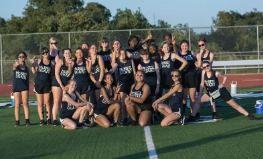On Wednesday, Jan. 31, Mark Zuckerberg, owner of Facebook and Instagram, and a myriad of other internet CEOs were brought before the Senate Judiciary Committee to be slammed with questions in regards to online child sexual exploitation.
Mark Zuckerberg reports that Facebook “(…) [has] around 40,000 people overall working on safety and security. And we’ve invested more than 20 billion dollars in this since 2016 including around 5 billion dollars in the last year alone(…)” in an attempt to eliminate any online harms. Despite this, Zuckerberg clearly still has uncovered areas. 28 years have passed since the beginning of the internet, and the current Facebook safety barriers are flimsy, and easily bypassed.
For example, the Senate brought out a large printout of Facebook’s options for inappropriate search results.
“‘These results may contain images of child sexual abuse,’” Texas Senator Ted Cruz quoted. “And then you gave researchers two choices, ‘Get resources,’ or ‘See results anyway.’ Mr. Zuckerberg, what (…) were you thinking?”
For all the money expended on the elimination of online dangers, the “barriers” against them are hardly effective. This situation as a whole highlights the dire need for minors to be protected on the internet.
In 2022, Senators Marsha Blackburn and Richard Blumenthal introduced, and later re-introduced, the “Kids Online Safety Act.”
KOSA was Congress’ proposed solution for restricting minors from “online harms.” In the bill, platforms carry the responsibility of “(…) [P]roviding (1) minors with safeguards, such as settings that restrict access to minors’ personal data, and (2) parents or guardians with tools to supervise minors’ use of a platform (…).” In essence, the bill would force applications to make changes in order to prevent things such as sexual exploitation and cyberbullying.
Although the intentions of the bill were good, there were obvious problems. Yet again, the movement to transform the internet into a friendlier place had failed.
According to the Electronic Frontier Foundation, “[KOSA would] require every user—including children—to hand private data over to a third-party simply to use a website if that user ever wants to see beyond the government’s “parental” controls.” Users would also need to upload IDs, or “identity verification documentation.”
Overlooking this clear privacy invasion, there is still the issue of over-censorship. Congress cannot decide what exactly should be censored. Because different political parties and ideologies find various topics harmful, what should be permitted to children’s viewing is relentlessly wavering.
At the end of the day, KOSA was a good attempt at a solution, but society needs better. Its rigidity and vagueness prevented it from success, and it will end up being another washed up attempt at internet safety. KOSA needs some serious revisions before entering the world. Evidently, a strict law will fail to fix something that is up to individual choice.
To elaborate, there is a glaring lack of laws forbidding children from seeing R-rated movies. This is an effect of the generally agreed-upon opinion that it’s a guardian’s decision to monitor the movies their children watch, much like it is the parents’ responsibility to monitor their children’s internet consumption.
The parental role of filtering their children’s internet activity is essential to the rise of internet safety for minors. Before giving their children online access, parents should be conscious of the fact that the internet is a dangerous place. Furthermore, parents are the individuals with the most agency and capability of interfering and protecting children from online harms. Safety barriers online are not always fool-proof. Laws can be broken, or stopped before implementation. When these institutions fail, it is the responsibility of adults to step in and watch over their children’s internet consumption, deciding what is harmful or not for their family.
Back at the trial, Zuckerberg mentioned the online tools Facebook has given to guardians to monitor their children’s internet usage.
“We are on the side of parents everywhere working hard to raise their kids,” Zuckerburg said. “Over the last eight years, we’ve built more than 30 different tools, resources, and features that parents can set time limits for their teens using our apps, see who they’re following, or if they report someone for bullying.”
Despite these tools, an underwhelming “39% of parents report using parental controls for blocking, filtering, or monitoring their teen’s online activities.” Further pushing the point that programs, apps, and online platforms have tried to increase internet safety, but parents are reluctant to use the full range of tools offered.
In conclusion, online platforms, Congress, and parents need to make improvements in protecting minors on the internet. With adjustments from all, the internet could truly be a friendlier place for children.







